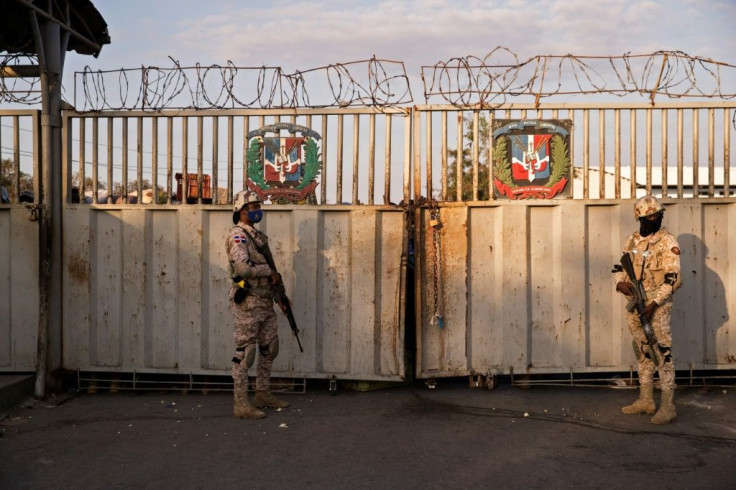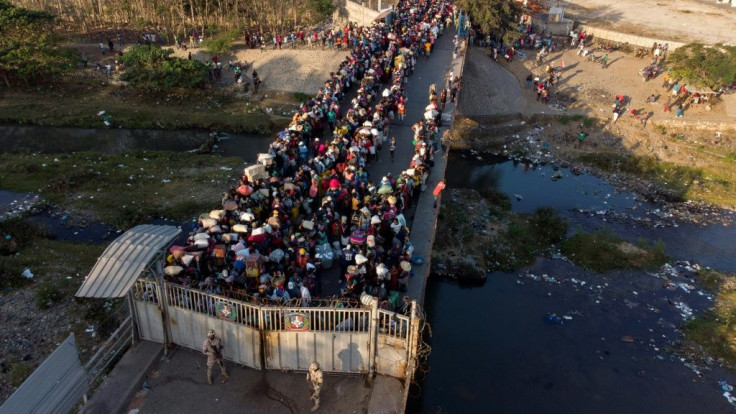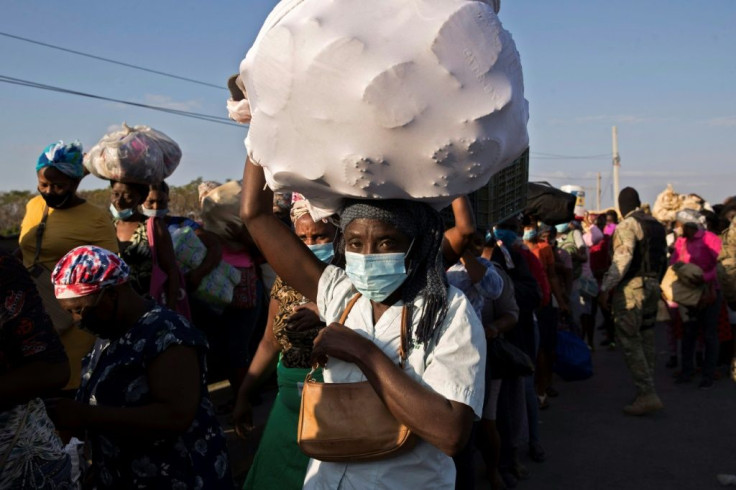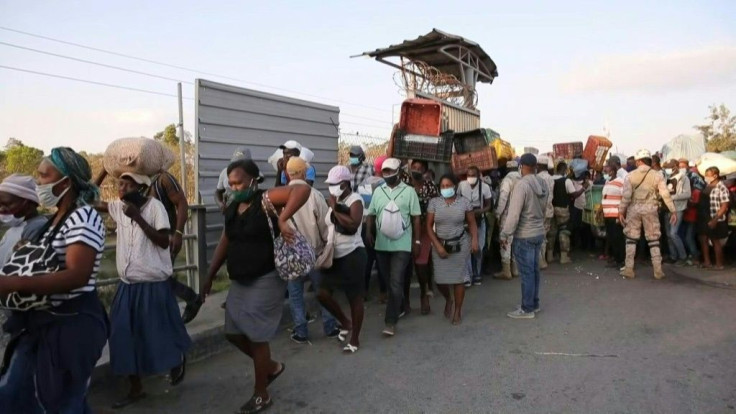Mooted Haiti-Dominican Border Wall Divides Opinion
Barefoot and with their pant legs rolled up, Haitians wade through a river into the neighboring Dominican Republic. They do this every morning on their way to work, and return by the same arduous route at day's end.
Vendors, farmhands, cleaners and construction workers, they avoid the formal border posts where they say soldiers are waiting to take chunks of their meager income as bribes for letting them cross illegally.
Shoes in hand, the day laborers hold aloft wheelbarrows or tools, others bear big bundles of second-hand clothes to be sold at market.

Tens of thousands of people in Haiti, the poorest country in the Americas and one of the poorest in the world, rely on informal labor in the much richer Dominican Republic for their survival. Those with a job are poorly paid, often off the books, as few Haitians have identity papers.
But even this unpredictable source of income is now at risk, with the government in Santa Domingo announcing plans for a high-tech border fence along the 380-kilometer (236-mile) frontier between the nations that live side-by-side on a single island.
President Luis Abinader announced last month that work on a wall would begin in the second half of this year to tackle what he said were problems of illegal migration, drug and human trafficking, and smuggling of stolen goods.

Dominican migration director Enrique Garcia told AFP this would be "no ordinary fence", mooting facial recognition and digital fingerprinting technology and infrared cameras.
The proposed barrier comes as the Dominican Republic, like many other countries, deals with economic decline driven by the coronavirus pandemic. The country recorded its first recession in nearly 25 years with about 40,000 jobs lost between March to October last year, according to the World Bank.
Haitians, with whom Dominicans have a complicated relationship, make for an easy scapegoat when things go wrong. About one in 20 people in the Dominican Republic is Haitian, according to national migration data. And thousands more cross the border daily, in and out, mainly on foot.

"They say they are going to build a wall. God willing it will be built. The Dominican Republic is full of Haitians," said Carlos Mateo, 43, a resident of the Dominican border town of Dajabon.

But others believe a barrier is not the answer.
"Yes, you have to build a wall, but a wall of companies, of industries" to give Haitians a means of subsistence, Dajabon major Santiago Riveron told AFP.
"When an individual works he does not need to emigrate. If the Haitians are well, we are well," he said.

Four official border posts separate Haiti with its 11 million inhabitants from the Dominican Republic with its population of 10.5 million.
Previous attempts at curbing the one-way traffic have ranged from issuing work and identity documents to illegal workers, to mass deportations.
Migration is a long-standing cause of friction between French-speaking Haiti with its population of mainly African slave descendants, and the Spanish-language Dominican Republic.
International agencies have long accused the Dominican Republic of allowing rights abuses on its soil, denying Haitians access to health care and documentation services.
In a recent report, Human Rights Watch expressed concern about the "precarious status" of Dominicans of Haitian descent and Haitian migrants in the republic.
"In response to Covid-19, the Dominican Republic suspended temporary legal status for more than 150,000 Haitian workers," it said.
Their uncertain legal status made Haitian workers vulnerable to forced labor, and not insisting on their rights "due to fear of being fired or deported," added a 2019 human rights report of the US Department of State.
Some say a wall, whatever the motivation, will have no effect as long as border guards accept bribes to let people in.
Residents interviewed by AFP said soldiers charge at least 1,000 pesos (about $18) per Haitian wishing to enter.
Others, like 63-year-old Maria Altagracia Perez, does not understand how the government would spend "so many millions" on a wall when construction on a local hospital was halted for a lack of funds.
"People here are dying for a lack of doctors, for lack of an operating room," she said.
© Copyright AFP 2024. All rights reserved.





















